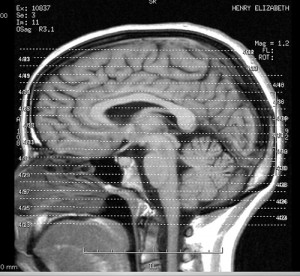My friend stomped down the hall in frustrated disbelief. The barriers she had tried to put in place were ineffective against my feeling, and almost hearing, the thoughts she wanted to voice but withheld from our conversation.
This was the second time within a week I was in close proximity to someone who angrily rejected what I had told them of the reality I experience.
There was no possibility of convincing either of them. The rigid constraints of their belief system blocked further discussion. I hold out hope that the first person may eventually accept what I can see; it appears the other will have to wait for another lifetime.
The second person was a coworker who I had to sit next to and not acknowledge the loathing that was building in him. He was a pro and thought he was hiding it and I allowed him to believe so. We weren’t having meetings to discuss the paranormal; we were working with computer software. It wasn’t not my job to convince him there are truths that lead to greater realities. If I tried, the outcome would’ve been worse.
I tend keep my personal beliefs out of the workplace. However, when asked about this blog, I don’t deny being the author.
––––
Most of what societies have believed to be true has been replaced with new ideas that have yet to pass the test of time.
In its quest for the ultimate reality, Western Civilization has pushed aside any number of true ideas and experiences simply because it has yet to develop tools with which to measure them. Ideas and talents that were once demonstrably true, lay forgotten by the masses. In the process, it has divided the world into discrete components and we have lost the ability to consider the degree to which interconnection exists.
 Anthropologists have said that the human brain is basically the same as it was some 40,000 years ago. According to Wikipedia, humans “…reached anatomical modernity about 200,000 years ago and began to exhibit full behavioral modernity around 50,000 years ago.”
Anthropologists have said that the human brain is basically the same as it was some 40,000 years ago. According to Wikipedia, humans “…reached anatomical modernity about 200,000 years ago and began to exhibit full behavioral modernity around 50,000 years ago.”
Our software is different today. We program our brains differently. We’ve learned more, we’ve adapted, we’ve trained to live in different environments than our ancestors had to. It’s also caused us to lose awareness of the talents we are capable of.
In fact, even with in my lifetime, we have changed how we store concepts. We have shown a trend to move our memory from inside our brains to external storage devices. It used to be common for people to know large passages of the Holy Bible, famous plays, or basic information such as trigonometric tables and the formulas that require them.
It can be argued that this externalization of memory has allowed us to grow in other ways and imagine more complex mental structures and gain a greater understanding. Indeed, this may be what has made our highly technical world possible.
Relationships within our families are changing, too. It is the rare family that prepares dinner together, cooks, and shares family stories of what happened during the day, or the struggles of relatives from years ago and how those trials were overcome. Children are less inclined to study from their elders and this has led to a loss of continuity in their culture. We are poorer for it.
––––
On our planet we have a mixture of different levels of culture and technology. As William Gibson, author of Necromancer, has said,” The future is here – it’s just not very evenly distributed.”
And so with a mix of old beliefs, loss of the anchors that holds societies together, and the search to define emerging truths, we are left dazed and largely confused. People are now rushing around grasping for relationships and for continuity, not knowing what they might have had.
––––
There are realities that I too have trouble embracing.
Once, I was at a retreat with a small number of friends where we had a wonderful night of celebration – exchanging ideas and wild theories. Each of us was deeply moved. Then my friend Stephen excitedly revealed that we were in contact with aliens who had been observing us. Further, he claimed that in a show of unity our Space Brothers had lifted the ground on which we were standing five miles into the air to be with them. I turned to my friend Jean for support. Jean chuckled softly, “That may be Stephen’s truth, but it’s not my experience.”
I have to agree.
– Jeffrey A. Limpert
__________________
References:
https://en.wikipedia.org/wiki/Human
https://en.wikiquote.org/wiki/William_Gibson
Image Information:
NASA Blue Marble 2007 West
By NASA Goddard Photo and Video
https://secure.flickr.com/photos/gsfc/4426654941/
_____
my brains – let me show you them
By Liz Henry
https://secure.flickr.com/photos/lizhenry/2051224366/

 Amazon – Unfolding: Awakening
Amazon – Unfolding: Awakening